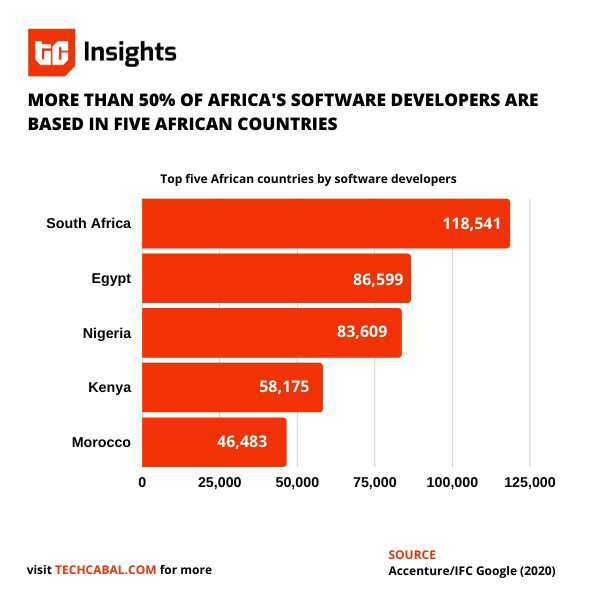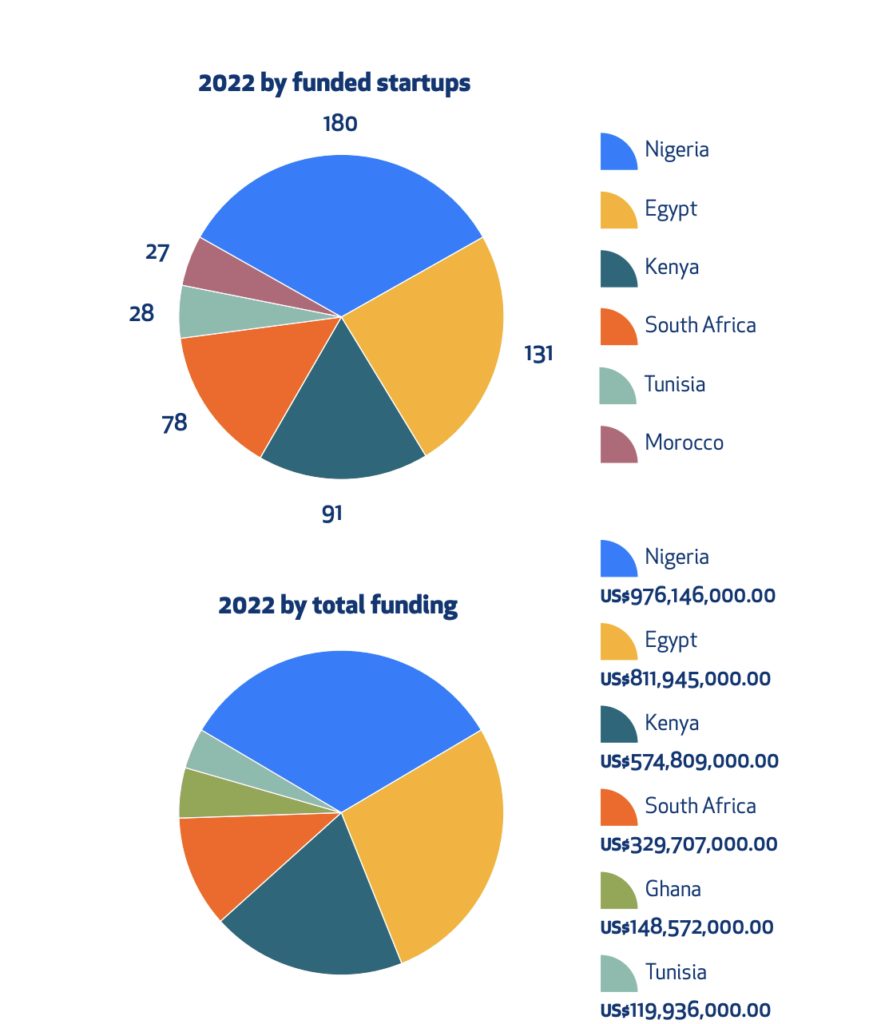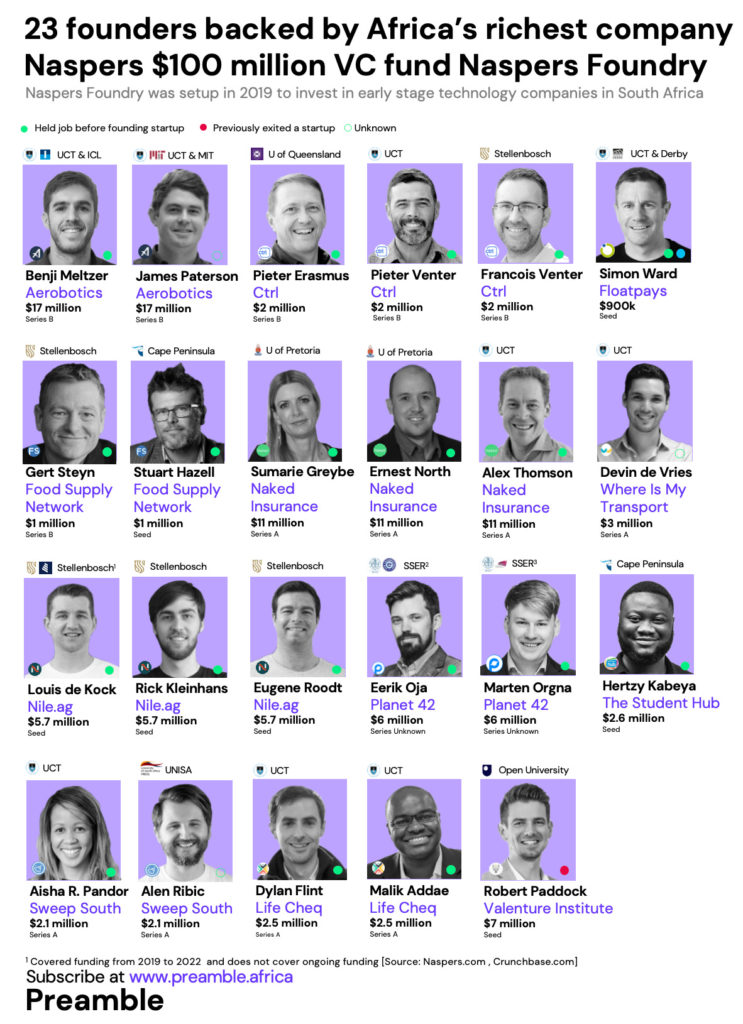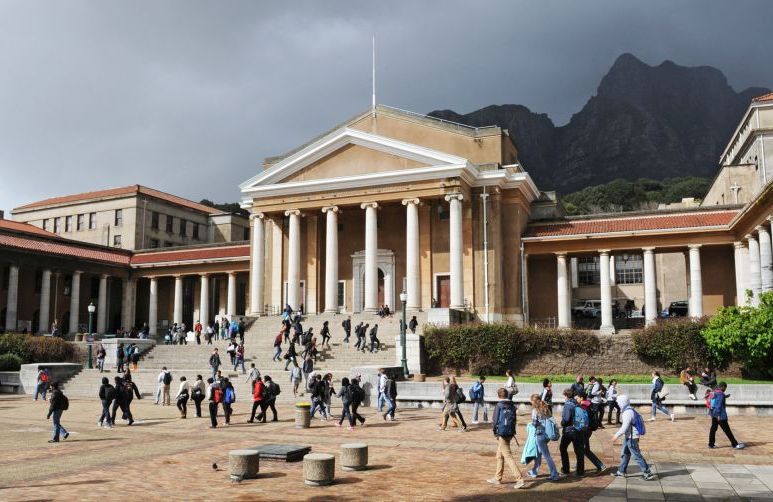South Africa produces the most software developers annually among the “big 4” tech hubs on the continent. Despite the technical talent, South Africa is dwarfed by countries like Nigeria and Kenya in producing scalable and investable startups. This article explores the disconnect in funnelling technical talent into entrepreneurship talent and how to address it.
According to research [pdf] conducted by Google and the International Financing Corporation (IFC), South Africa produced 118,541 software developers, per 2020 figures. It was followed by Egypt, Nigeria, and Kenya with 86,599, 83,609, and 58,175 developers respectively.

However, despite producing the most number of software developers, South Africa lags behind in churning out investable and scalable startups. According to data by Statista, Nigeria has the most number of startups on the continent, with 3,360 entities, followed by Kenya with 1,000 and South Africa with 660.
When it comes to attracting venture capital [pdf], South Africa also lags behind, attracting $550 million in funding in 2022 through 78 startups. This figure is dwarfed by Nigeria’s $976 million from 180 funded startups, Egypt’s $812 million from 131 startups and Kenya’s $574 million from 90 startups.

So, why is South Africa’s tech talent and alumni not going on to found fundable and scalable startups? In theory, it would make sense for the number of tech talent to directly correlate with the number of investable startups in a market, a trend which holds in other markets like the US and Europe.
Raphael Segal, a startup founder and industry veteran with over 30 years of experience in the industry, believes that South Africa’s talent pipeline problems stem from fundamental issues. This includes a lack of access to seed funding, which sees promising startups dying off before they achieve any sort of traction.
“We have some fundamental challenges. This includes lack of seed capital to bet on these developers coming out of varsity to take their ideas to market. Even for those who are lucky enough to get funding, you see that even though they have the technical talent to build products, they lack the entrepreneurship skills to make a business case for those innovations. What then happens is that these startups run out of runway before really establishing their presence,” he told TechCabal.
According to the Google and IFC report, the quality of technical talent coming out of South African universities is immense. For example, before going under in March, the Naspers Foundry’s R1.4 billion fund, the biggest in South Africa at that time, backed startups whose founders went to majority South African universities including UNISA, Stellenbosch, University of Pretoria, and largely, University of Cape Town (UCT) to the total tune of over R700 million.

Another startup, which can trace back its origins to UCT, is Lipa Payments, a fintech startup whose product offering enables contactless payments via smartphones. Last year, the company raised a $600,000 seed round. According to co-founder Thando Hlongwane, who started the company whilst still pursuing his studies, what the university got right was its ability to support aspiring entrepreneurs by providing access to startup ideation initiatives, incubation facilities, and connecting students with the broader Cape Town startup ecosystem.
“UCT definitely had an enabling environment [for building tech products]. The information systems department had an innovation lab which I was a part of. We had access to 3D printers, virtual reality machines, and a whole lot of other tech which allowed us to not only ideate but also create,” Hlongwane told TechCabal. “The alumni ecosystem of the school was also quite supportive and through it, I met Jason Basel, founder of Akro, who today remains a mentor of mine and helped one of my other startups, Zaio, raise its first round of funding.”
Hlongwane further added that apart from the amenities offered by the university’s innovation lab, there were also ideation initiatives such as UCT Flux which allowed students to build new startups using a design thinking methodology.
“The likes of Akro, who we connected with via the university, gave us free access to their co-working spaces which proved to be a huge help in our early days,” added Hlongwane.
How to improve the “varsity project to successful startup” conversion rate in SA
Like Hlongwane, Ndabenhle Ntshangase also started his startup, AirStudent Travel—a group booking platform where students can make travel bookings together and access group rates in the process—whilst still pursuing his degree in Economics at UCT.
“I’m from Kwazulu Natal, in a small town called Fred, but I studied at UCT. At the end of each term, I had to travel between home and university and the trips got quite pricey. But I found out that there are also thousands of other students that did the same thing at the end of each term, so I came up with the idea for Airstudent Travel to address that pain point,” Ntshangase told TechCabal.
On what could be done by South African universities and other tertiary institutions to foster the creation of sustainable and scalable startups by students, Ntshangase believes that beyond just amenities like co-working spaces and labs, there should be much emphasis on business development beyond just theory learning in classes.
“It would be great for institutions to show support for the products created by these innovators. This would help with early momentum and traction which helps a lot when trying to raise funding. If the institution believes your product is good and they put you on the school newspapers, etc, they should translate that support into actual business transactions,” he added.
Hlongwane further reiterates the need for schools to foster entrepreneurial lessons beyond just the classroom.
“What my course gave me was foundational skills of building a technology product which are, of course, super important. But what also matters, and perhaps was not fostered enough, are in-depth skills both on the technical and business side of building a startup. For example, on the technical side, there wasn’t much emphasis on frameworks and specific programming languages to apply to the product that I was building. On the business side, perhaps there could have been more emphasis on aspects like business development, marketing, sales, etc,” said Hlongwane.
How universities are trying to address student entrepreneurs’ needs
Anda Ngcaba is the innovation director at UCT’s Financial Innovation Hub where his role encompasses commercialising research by PhD and post-doctoral level students and also leading the hub’s innovation activities and pre-incubation program. The students are given a bursary to cover their living expenses and also, to some level, incentivise them to focus on building the startup instead of going out to find a regular job.
Beyond just helping startups commercialise their research, the hub also puts the startups in the scope of investors who are associated with the hub. If the figures are anything to go by, it seems like the hub’s strategy is reaping benefits for the startups. According to Ngcaba, seven startups from the hub have gone on to raise R16 million in grant and equity funding in the last three years.
“My role at the financial innovation hubs sits within the commercialisation of that research by students. We have about five research work streams ranging from blockchain applications to financial inclusion. I work hand in hand with the students to help them find ideas within their research and commercialise it. Through the hub, we either try and prepare the students that come out of the course for entrepreneurship or if we see that this person isn’t very entrepreneurial driven, we then try to find them a spot in one of our startups or in the broader ecosystem,” Ngcaba told TechCabal.
On the challenges the hub has faced in executing its mandate, Ngcaba states that asking students to focus on building a startup instead of accepting lucrative offers from employers has been a challenge they have had to deal with.
“Obviously people come from different environments and others sometimes have families to support so employment becomes a more attractive option than working on a startup. Although we have a bursary program, sometimes they get offers which are far beyond our package. What we try to communicate to the founders are the long-term benefits of building out your own company and eventually improving the lives of your fellow community members either through employment creation or through products that really change lives. I think so far, this has worked as the hub has a reasonably high retention rate,” he added.
According to Ngcaba, the hub plans to commercialise research from a further six startups, bringing the total alumni of the hub to twelve entities in the next two years to three years. The hub is also working on a venture studio model to help student entrepreneurs spin up proof of concepts way quicker than they otherwise would if they went at it alone.
A VC’s perspective
According to Clive Butkow, CEO and partner at Kalon Ventures, a Johannesburg-based venture capital firm, the South African startup ecosystem would benefit greatly from founders who are apt at both the technical and business aspects of running a startup.
Butkow believes that South African universities produce the brightest technical and engineering talent on the continent. However, to supplement this, he believes there needs to be more emphasis on teaching students entrepreneurship so that their solutions become scalable and fundable startups.
“I receive numerous pitch decks from student-founded startups and what is constant in these is the lack of clarity on how exactly the product would make sense business-wise,” Butkow told TechCabal on a call. “To build a venture capital attractive startup takes more than just writing code. Universities have to also enforce things like unit economics, accounting and other aspects in their course outlines. A combination of top-tier engineering talent and top-tier business talent would really elevate the South African startup ecosystem to another level.”
On the need for “patient capital” to invest in these startups, Butkow believes that VC funding will always come to startups who show that they are on the right trajectory to eventually make the deal sensible for startups.
“Unfortunately we are in a downturn which means that VCs have to be really careful with where they deploy capital. I believe it is the responsibility of these young entrepreneurs in tertiary institutions to learn as much as they can about the aforementioned aspects of entrepreneurship. This should happen with the support of the institutions themselves of course,” he concluded.
The number of software developers coming out of South African tertiary institutions is perhaps proof of the quality of education in these institutions. Luckily, for the country, the reason a majority of these technical talents don’t proceed to found successful startups is clear. What comes next is addressing those causes.
To eventually churn out more startups like Lipa Pay and Airstudent Travel who would go on to not only raise funding and scale up but also create products that address pressing socio-economic challenges, there needs to be more emphasis on equipping students with entrepreneurial skills they can use to build sustainable startups. Founders like Hlongwane and Ntshangase are perhaps proof of the tenacity of South Africa’s entrepreneurial spirit, having been able to balance their studies with building startups which seem to be on track to make their presence felt in the country’s tech startup ecosystems.
The need to produce more Hlongwanes and Ntshangases cannot be overstated enough in a country where youth employment currently stands at 62%. Not only is entrepreneurship an avenue for employment creation in a country which desperately needs it, it is also an avenue to address the country’s numerous socio-economic challenges including a lack of financial inclusion and access to affordable education.
Although the efforts by universities like UCT through initiatives such as the Financial Innovation Hub are commendable, there is still a lot of work to be done. Government, through incentives like seed funding programs and tax breaks for startups, could play a part in fostering and promoting entrepreneurship by varsity innovators. On the VC side, there is perhaps a need to make available patient capital which would make accessible seed capital to ambitious founders who unfortunately do not have access to seed capital to get their ideas off the ground.





















